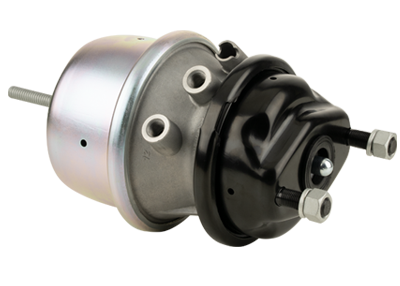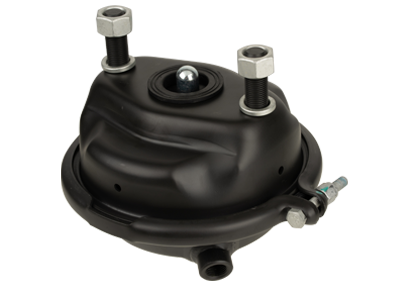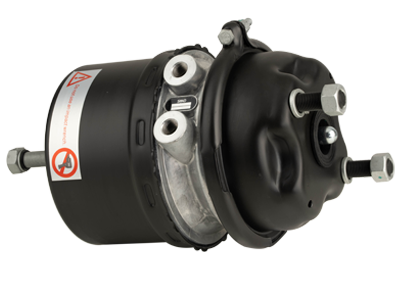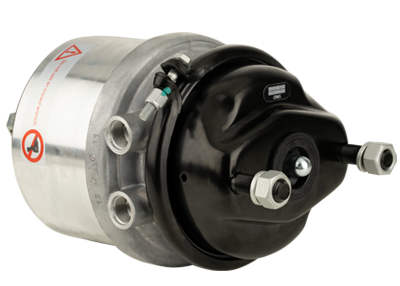Recognizing the signs of a failing air brake chamber is crucial for maintaining the safety and functionality of a vehicle's braking system. When an air brake chamber begins to fail, it can affect the vehicle's braking performance and pose a safety risk. Here are some common signs and symptoms of a failing air brake chamber:
Reduced Braking Power: One of the most noticeable signs of a failing air brake chamber is a significant reduction in braking power. The vehicle may take longer to come to a stop, and the brakes may feel less responsive.

Uneven Braking: Failing air brake chambers can cause uneven braking, where one wheel or axle brakes more forcefully than others. This can lead to swerving or pulling to one side during braking.
Brake Drag: A failing air brake chamber may not release the brakes fully when the pedal is released. This results in brake drag, where the brakes continue to apply slight pressure even when not intended, leading to increased fuel consumption and brake wear.
Audible Air Leaks: If there are air leaks in the air brake chamber, you may hear hissing or escaping air when the brakes are applied. These audible leaks can be a clear indicator of chamber problems.
Visible Damage: Inspect the air brake chamber visually for signs of damage or wear, such as cracks in the housing, tears or punctures in the diaphragm, or visible corrosion on metal parts.
Delayed Brake Response: A failing air brake chamber may result in delayed brake response, where there is a noticeable delay between pressing the brake pedal and the brakes actually engaging.
Overheating: Overheating of the air brake chamber can occur due to excessive friction or sustained heavy braking. An overheated chamber can lead to diaphragm damage and reduced performance.
Air Pressure Loss: A failing chamber may lead to air pressure loss in the brake system. You may notice a decrease in air pressure on the vehicle's air gauge or warning lights indicating low air pressure.
Excessive Pushrod Travel: If the pushrod on the air brake chamber travels too far when the brakes are applied, it can indicate that the chamber is not functioning properly. This can result in inadequate brake adjustment.
Inconsistent Braking: The brakes may engage and release inconsistently, causing a jerking or juddering sensation when stopping the vehicle.
Warning Lights: Modern vehicles equipped with air brake systems often have warning lights or indicators on the dashboard that can illuminate if there are issues with the braking system, including the air brake chambers.
Increased Brake Noise: Failing air brake chambers can lead to increased noise during braking, which may be due to misalignment, excessive wear, or air leaks.
If you observe any of these signs or symptoms, it's essential to address the issue promptly. Failing air brake chambers can compromise vehicle safety and should be inspected and repaired by a qualified technician. Regular maintenance and inspection of the entire braking system can help identify problems early and prevent more significant issues from arising.







 英语
英语 中文简体
中文简体 德语
德语 俄语
俄语 西班牙语
西班牙语 法语
法语
